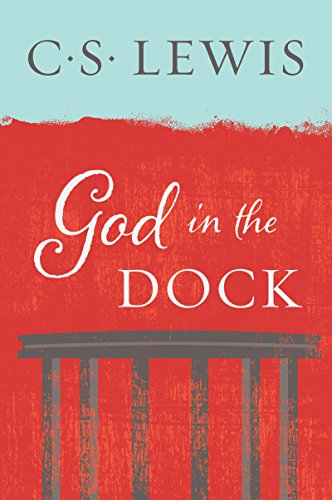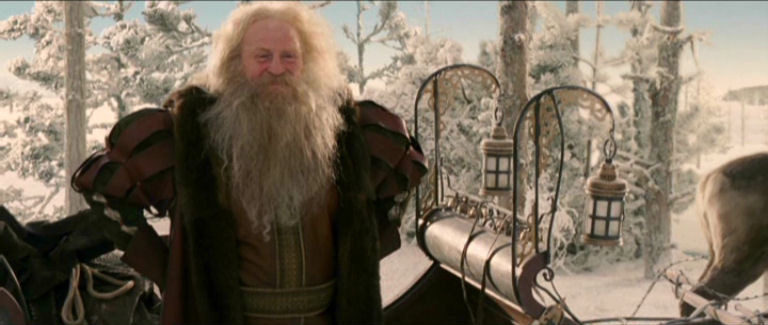Why Did C. S. Lewis Despise Christmas Cards?
Several of my friends have sent us Christmas cards. I love getting every single one of them.
Similarly, I love how many people have the time and resources for beautiful backyards: the kind with perfect grass, a fenced garden, plenty of room for pets, and a fully loaded swimming pool with separate hot tub and artificial rock wall for an ultimate summertime getaway. (Complete with water slide. Clink.)
In either case, folks: I can’t do that myself.
But I fight the sin of covetousness. I want to be grateful for those who have these gifts–grateful that they exist.
Plus, if you haven’t noticed, Christmas cards have gotten better. They’re less cheesy.
Most of the time it’s just a photo of my friend’s smiling family. Along with seasonal and Christlike wishes for the recipient’s best. Sometimes a family update letter is enclosed. And the letter tends to include rejoicing for blessings and lament for trials and sufferings in the previous year.
C. S. Lewis hated secular, sentimental ‘Exmas cards’

(Image from rawpixel.com / New York Public Library)
This model of Christmas card is apparently an improvement over the saccharine, sentimental Christmas cards of yore.
Which, it seems, are exactly the sorts of cards that C. S. Lewis made it very clear he despises with all his being.
You won’t of course find an anti-card rhapsody in Lewis’s fantasy books or apologetics works. Instead, we find this scathing takedown in a Lewis collection called God in the Dock: Essays on Theology and Ethics, edited by Walter Hooper.
In Lewis’s satirical essay “Xmas and Christmas,” his logic isn’t very deep. But his passionate conviction is.
 Lewis describes a strange land oh-so-cleverly called Niatirb, whose residents “use the following customs”:
Lewis describes a strange land oh-so-cleverly called Niatirb, whose residents “use the following customs”:
In the middle of winter when fogs and rains most abound they have a great festival which they call Exmas, and for fifty days they prepare for it in the fashion I shall describe.
First of all, every citizen is obliged to send to each of his friends and relations a square piece of hard paper stamped with a picture, which in their speech is called an Exmas-card. But the pictures represent birds sitting on branches, or trees with a dark green prickly leaf, or else men in such garments as the Niatirbians believe that their ancestors wore two hundred years ago riding in coaches such as their ancestors used, or houses with snow on their roofs.
And the Niatirbians are unwilling to say what these pictures have to do with the festival, guarding (as I suppose) some sacred mystery.
And because all men must send these cards the market-place is filled with the crowd of those buying them, so that there is great labour and weariness.
But having bought as many as they suppose to be sufficient, they return to their houses and find there the like cards which others have sent to them. And when they find cards from any to whom they also have sent cards, they throw them away and give thanks to the gods and this labour at least is over for another year. But when they find cards from any to whom they have not sent, then they beat their breasts and wail and utter curses against the sender; and, having sufficiently lamented their misfortune, they put on their boots again and go out into the god and rain and buy a card for him also.
And let this account suffice about Exmas-cards.1
And they buy as gifts for one another such things as no man ever bought for himself.
—C. S. Lewis
Lewis: ‘For the sellers … put forth all kinds of trumpery’
This holiday season, find you Lewis’s complete essay “Xmas and Christmas.”
Because Lewis in full satire-Scrooge mode goes on to share his gentle opinions about more Exmas traditions:
- Gift-giving
And the sellers of gifts no less than the purchasers become pale and weary, because of the crowds and the fog, so that any man who came into a Niatirbian city at this season would think some great public calamity had fallen on Niatirb. This fifty days of preparation is called in their barbarian speech the Exmas Rush.
—C. S. Lewis
- Father Christmas cosplay
- The Exmas Rush
- Overeating
- Overdrinking
- Secular holiday traditions versus sacred traditions
Lewis concludes, “It is not likely that men, even being barbarians, should suffer so many and great things in honour of a god they do not believe in.”
Ouch.
However, Lewis also had many a friendlier take on Christmas. For this, we need only recall the arrival of this man into a far more sensible land:

To all our readers at Speculative Faith, especially those to whom I didn’t send an Exmas-card (i.e., all of you):
“A Merry Christmas! Long live the true King!”

- C.S. Lewis, “Exmas and Christmas,” reprinted in God in the Dock: Essays on Theology and Ethics, ed. Walter Hooper, pages 301–302. (I’ve added some paragraph breaks to the original text, just to help simplify screen reading.) ↩






























Yeah. I love Lewis’s take on empty holiday traditions. Please don’t call him a scrooge though. Snarky as the piece was.
Scrooge was a greedy misanthrope. Nowadays he’d be a big champion of Christmas because of increased sales opportunities.
Christmas, Easter and weddings would all be greatly improved if we put spending caps on these celebrations to focus more on the sacred and human connection.
C.S. Lewis also disliked his church’s attempts at being hip and trendy (relevant) with popular music and lyrics he compared to drinking songs. I doubt they were as bad as the 7-11’s a certain music franchise cynically grinds out for optimum $$$$$.
One interesting aspect of this article is the statement that Christmas cards have gotten better. Well, they certainly have changed and many are now, as you said, simply a photo along with some family news. I think less are sent overall though and people probably care less about getting a card from someone whom they haven’t sent a card. So I think we can fairly call that an improvement.
But the Christmas rush is even bigger in Niatirb and also Acireram and even the Eritne Dlrow than it was in Lewis’s day. So I don’t believe he would think we’ve improved as a society overall, even though yeah, culture did very much change in regard to Christmas cards.
Well, Lewis seemed to be mortally offended by tacky commercialism in general, so it’s probably a good thing he never saw the 80’s and onward or he would have spontaneously combusted.
One aspect of this is how much people value social norms and traditions above people sometimes. Like, for Christmas cards and family photos, people can be so obsessed and particular about having the perfect photo that they end up stressing out everyone involved, even though the point in being together is to have fun.
Or like…I dunno. That trope where someone is a decent person, and maybe does lots of considerate things during the year, but is treated like a complete jerk just for forgetting an anniversary or birthday. Like, yeah, those things matter and should be remembered, but doesn’t the way the person act throughout the year matter more? And if someone is going to get super mad at their spouse just for forgetting an anniversary or something, doesn’t that kind of mean the person is valuing the tradition of the anniversary over the actual relationship?
Idk. Sending cards and remembering anniversaries and all that can be thoughtful, but people act like such social norms are sacred when they’re not. Instead of just taking those types of things as the only possible symbols of someone’s thoughtfulness, maybe we should look at the person’s overall behavior throughout the year instead. Maybe we’d appreciate each other more then.
[…] first(?) Lorehaven Christmas Special. We’ll resume Friday reviews after the holiday break. An original version of this article was published at SpecFaith on Dec. 24, 2019. I’ve also adapted material from this piece. […]